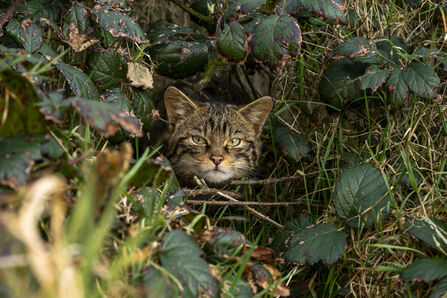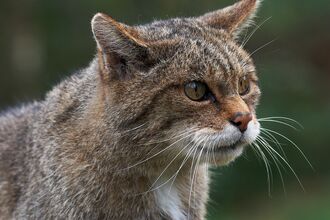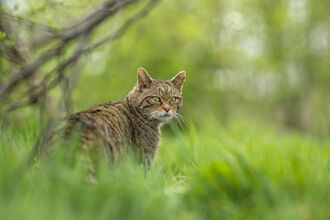A new report published today reveals that the South West of England could support a reintroduction of European wildcats after more than a 100-year absence from the area, marking a vital next step in helping to secure the future of the UK’s most critically endangered mammal.
The study finds that a sustainable population of wildcats could flourish in the South West and that 80% of people surveyed in the region were positive about their reintroduction.
The comprehensive two-year investigation, undertaken by the South West Wildcat Project – a partnership of organisations led by Devon Wildlife Trust which includes Forestry England and the Derek Gow Consultancy – concentrated its analysis on four main aspects of wildcat reintroduction: 1) impacts on people and communities; 2) impacts on other wildlife; 3) impacts on farming livestock and pets; and 4) the long-term sustainability of a wildcat population after reintroduction. Find the full report here.
European wildcats – historically also known as ‘woodcats’ – were once widespread in the South West, along with many other parts of England, Scotland and Wales. However, centuries of persecution, plus the loss and fragmentation of their favoured woodland and rough grassland habitats saw them disappear across much of their range. The South West’s last wildcats are thought to have survived until the mid-nineteenth century.




